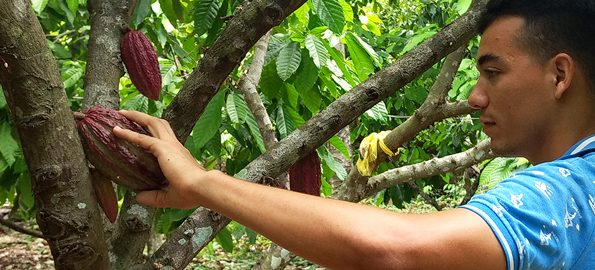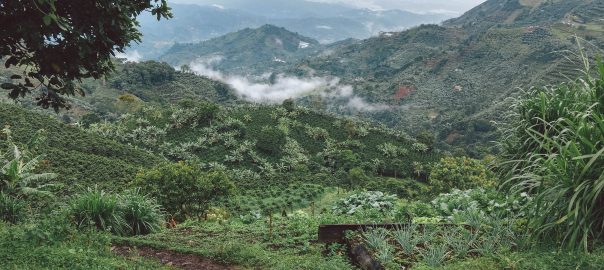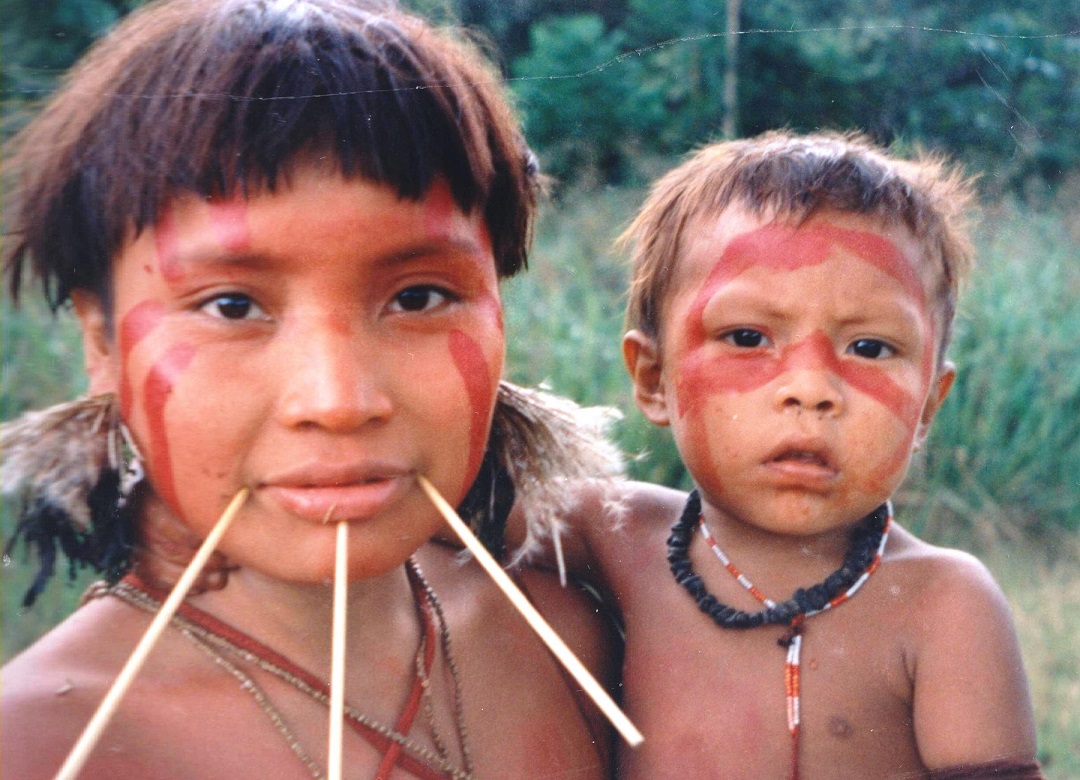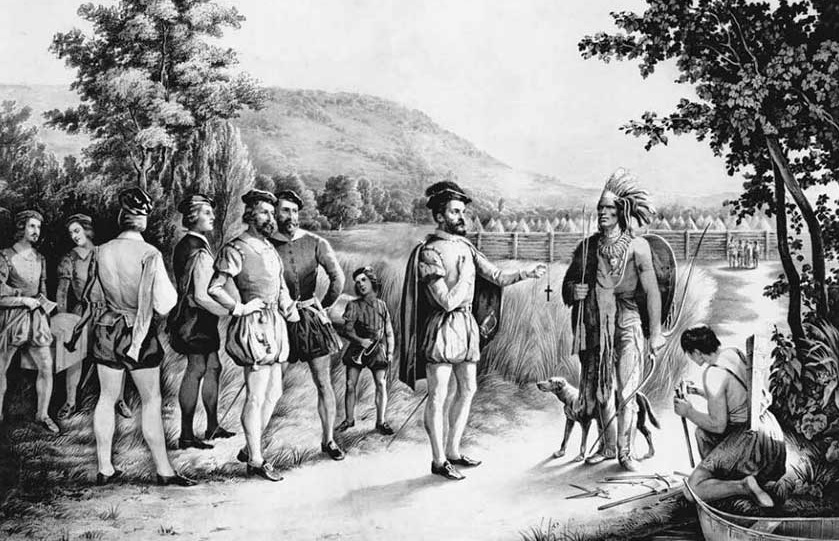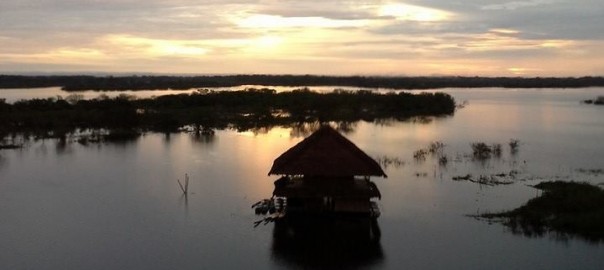Tag: colombia
Coffee farmers struggle to adapt to Colombia’s changing climate
by Jessica Eise and Natalie White Continue reading Coffee farmers struggle to adapt to Colombia’s changing climate
Can Colombia reverse the brain drain of its scientists?
by Enrique Angarita Continue reading Can Colombia reverse the brain drain of its scientists?
The dengue detectives
Control teams, mosquitoes and climate change on the frontlines of Latin America’s dengue epidemic Continue reading The dengue detectives
How can we prevent cultural heritage loss in Latin America?
Despite five hundred years of perseverance, Latin America’s cultural heritage is being eroded and modern medicine stands to lose, too. Continue reading How can we prevent cultural heritage loss in Latin America?
Retreating glaciers in Colombia, the possible Aztec origin of the Voynich manuscript, and a 65 million year old plesiosaur found in Chile.
BOLIVIA A Bolivian company is offering a certified chia seed for farmers interested in moving into the expanding international chia market. LATIN AMERICA Cancer is the second leading cause of death in Latin America and the Caribbean, according to statistics from the Pan American Health Organization. ARGENTINA Scientists at Argentina’s National University of Rosario have … Continue reading Retreating glaciers in Colombia, the possible Aztec origin of the Voynich manuscript, and a 65 million year old plesiosaur found in Chile.
Mexico’s coffee feels the heat, Colombia to open its first aviary, and a Puerto Rican scientist finds capybara fossils.
COLOMBIA Colombia plans on opening its first aviary off the Caribbean coast of the city of Cartagena and will harbor around 1,850 species. MEXICO Climate change is affecting coffee production in Mexico’s Chiapas region. More moisture means more coffee rust, a fungus that is currently spreading through South and Central America. PUERTO RICO A Puerto … Continue reading Mexico’s coffee feels the heat, Colombia to open its first aviary, and a Puerto Rican scientist finds capybara fossils.
Ethnobiological drug discovery in Latin America
In the 1530s, the French seafaring explorer Jacques Cartier noticed that indigenous slaves did not die from the debilitating disease that was spreading through the ranks of his sailors. Upon inquiry, Cartier learned from Dom Agaya, one of the Huron natives, that the use of decoctions from the ameda tree protected them against scurvy. This … Continue reading Ethnobiological drug discovery in Latin America
New ‘Game of Thrones’ slug found in Brazil, the ‘sponge effect’ of Latin America’s tropical forests, and Peru’s scientific cruise sails for Antarctica.
BRAZIL Brazilian scientists have discovered a slug that lives on the northwest coast of the country which they dubbed Tritonia khaleesi in honor of the character from the renowned television series “Game of Thrones.” The slug can grow up to 12 mm long and has a white stripe along the body that resembles the braid … Continue reading New ‘Game of Thrones’ slug found in Brazil, the ‘sponge effect’ of Latin America’s tropical forests, and Peru’s scientific cruise sails for Antarctica.
2014 and the future of Latin America’s bioeconomy
From quinoa genes that enable crops to resist climate change to intestinal bacteria that produce biopolymers and biofuels, scientific work performed in 2013 in Latin America suggests the continent is poised to become a bioeconomic power. Continue reading 2014 and the future of Latin America’s bioeconomy
Weekly digest: An in-depth look at Belo Monte dam, the threat of a fungus on Latin America’s bananas and exporting the Galapagos model to Chile.
BRAZIL In mid-2011, construction started on Brazil’s Belo Monte hydroelectric dam on a southeast tributary of the Amazon started and by early 2015 should supply 18 million people with its 11,200 MW capacity. Of course, that’s when the Xingu river is flowing at full strength. The average capacity will generate 4,500 MW. Folha de Sao … Continue reading Weekly digest: An in-depth look at Belo Monte dam, the threat of a fungus on Latin America’s bananas and exporting the Galapagos model to Chile.
Controlling corn pests in Argentina and Mexico, the coffee growers’ strike in Colombia, and orcas beached off Chile’s Patagonia coast.
ARGENTINA Diabrotica, better known as the corn rootworm, is a pest beetle that causes major losses in the corn crop. Because the larvae develop underground, root growth is hindered and yield is affected. To control the pest, researchers have developed Diabrotica-resistant transgenics and rotated crops to disrupt their lifecycle. Scientists from the University of Buenos … Continue reading Controlling corn pests in Argentina and Mexico, the coffee growers’ strike in Colombia, and orcas beached off Chile’s Patagonia coast.

